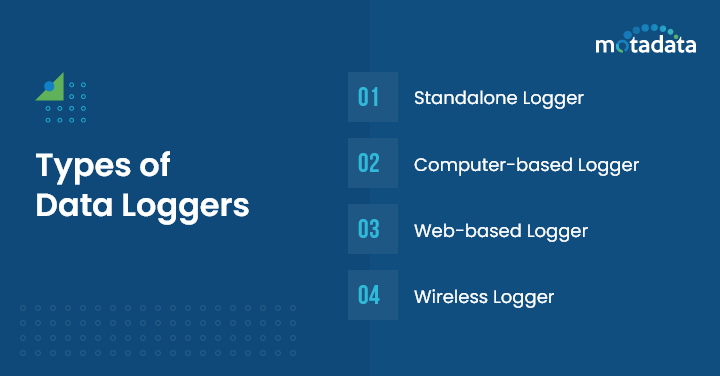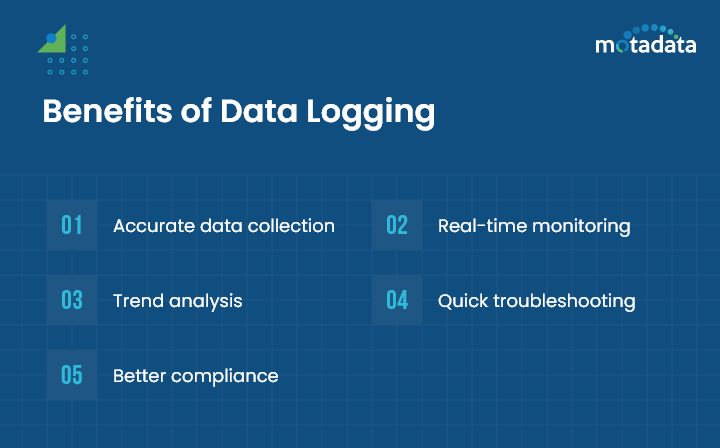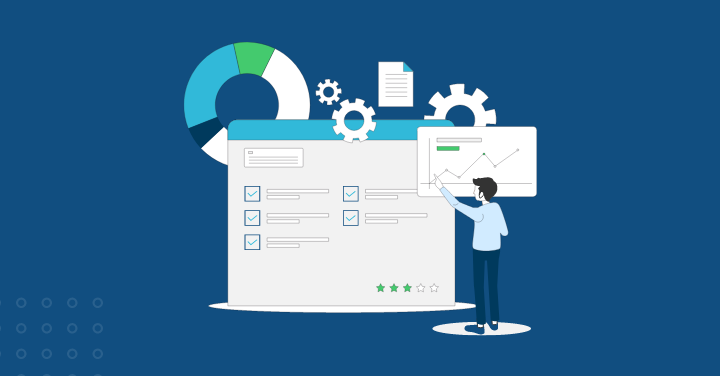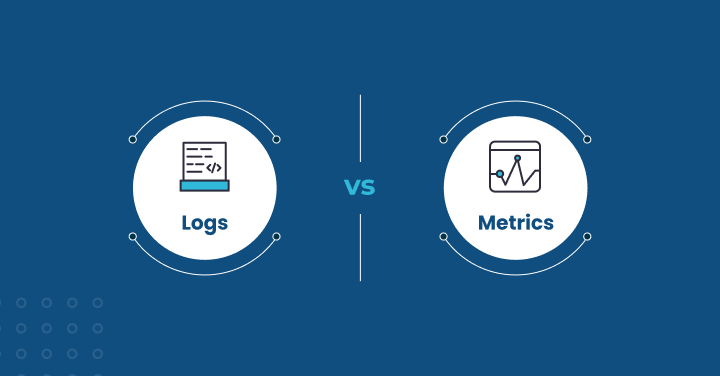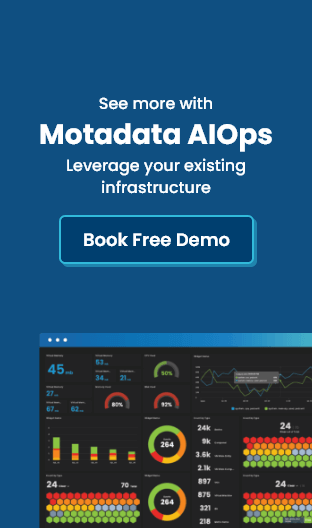Every moment of downtime equates to loss and reduced productivity. But what if the downtime did not take place in the first place? Yes, it’s possible to achieve that with the power of data logging.
Data logging can prevent server downtime by spotting issues ahead of time, predicting problems, and ensuring proactive maintenance, depending on constant monitoring.
If you’re an enterprise that is heavily reliant on IT infrastructure, data logging is something you must consider.
Continue reading to know everything you need to know about data logging.
What is Data Logging?
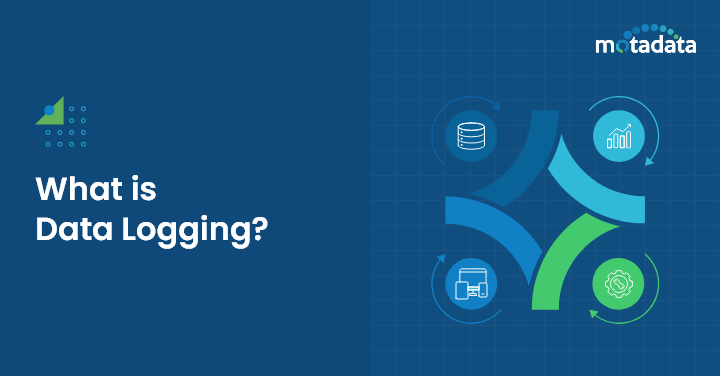
Data logging is recording events or measurements to monitor real-time data. To be precise, it involves collecting machine data to identify security incidents and provide information about unusual conditions across multiple infrastructure components, such as network devices (Firewall, Router, Switch, Load Balancer etc.), server infra (Windows, Linux, Hyper-V, VMware, AWS, Azure etc.) and applications (Apache, Nginx, IIS, Active Directory, Tomcat, ActiveMQ, Oracle, MSSQL, PostgreSQL etc.).
The device that facilitates data logging is known as a data logger. A standard data logger uses a remote sensor to gather data, a microprocessor to record data, and built-in memory to store the data.
Data loggers enable you to assess and track data trends, helping you gain essential system information.
Before we delve deeper into each section, you must remember that the IT heads are responsible for ensuring consistency in recording logs for individual applications and all the applications in the organization’s portfolio.
How Does Data Logging Work?
Data logging works through sensors that evaluate physical parameters. The sensors generate data, converting physical parameters into digital information.
The data logger is configured to collect and process this data.
It continuously gathers sensor information and stores the data in a designated internal memory or external storage.
After collecting the data, each data point gets associated with a time stamp to prepare a chronological event sequence.
Users can fetch stored data to analyze and identify trends, anomalies, and relevant patterns.
Since stored data offers a detailed understanding of parameter changes over a period, enterprises can make informed decisions and optimize processes.
Data logging is a structured, automated approach that improves monitoring and managing complex systems in diverse industries.
How Important is Data Logging for your Organization?
Maintaining data logs is a proactive way for an organization to closely monitor the performance of all the critical applications in their IT infrastructure.
While logs can be an overwhelming and extensive chunk of data, they serve as a gold mine that provides system administrators with insightful operational intelligence.
A robust data logging mechanism in place can give system administrators red flags about performance and security issues ahead of time before the entire system crashes and eventually freeze your operations.
Digging out helpful information is difficult, but that should not deter you from collecting data logs.
In certain situations, extensive data logging can turn out to be critical for troubleshooting.
This can save organizations time, money and resources to pinpoint the exact problem in a complex network of nodes.
It helps to track all the interactions through which data is stored, accessed, or modified on a storage device.
Industrial applications and scientific experiments require collection of information quickly and accurately than manual processes utilize data logging technology.
When utilized well, the data of logs can turn into operational intelligence.
Data logging allows you to keep a close watch on the business processes such as cart abandonment, transactions, connections, etc., in case of an e-commerce business, and so on.
You can keep a better pulse on your business with an efficient data logging mechanism.
Types of Data Loggers:
1. Standalone loggers–
Standalone data loggers do not need a constant network connection, they operate independently.
This logger type is portable and best used in remote or challenging environments.
2. Computer-based loggers–
They connect directly to the computer system to ensure data collection and analysis.
Computer-based data loggers use USB to transfer data, making them appropriate for apps that benefit from immediate access.
3. Web-based loggers –
Web-based loggers facilitate data monitoring via web interfaces.
Users can observe, evaluate, and manage data remotely using a web browser, which is best for apps requiring decentralized monitoring access.
4. Wireless logger –
This logger communicates data without physical connections using Bluetooth, Wi-Fi, or other wireless protocols.
A wireless logger is the most convenient for apps where wired connections are impractical.
What are the Instances where Event can be Used for Data Logging?
When you have log data to work with, it becomes easy to use a log management solution to swiftly identify abnormalities.
This brings emphasis to the types of events to consider for data logging.
Collecting log data for security and performance monitoring events is always a top priority.
In addition, an organization should also log data of events relating to audit trails.
This gives insights into activities such as data modification, deletion, and exports.
The type of events selected to record data logs for tends to differ based on the organization’s requirements.
However, logging certain data requires prior consent and may be illegal. Use your discretion before deciding on the events for data logging.
For turning the theory of data log events into practice for your organization, you need to first investigate the purposes for which you will require data logging.
This is the most important aspect for designing a data logging mechanism that is efficient at providing meaningful insights and for proactively approaching various issues.
However, with a wide range of data logging sources comes another challenge, which is, easy access of log data for the developers.
A central management of logs from multiple sources with user-base access control improves the productivity of your team.
They can solve the issue rather than spending time in locating the data logs of the potentially compromised hosts.
What are Different Formats of Data Logging?
The most used formats for data exchange are XML and JSON. These two formats are universal because they can store numerous types of data.
However, there is more to these log data formats, which make them a preferred choice.
XML and JSON are plain text file format, which makes it possible to open them in Notepad and easily read.
There are other formats to consider like:
- Vendor specific Firewall logs apart from standard Syslog messages.
- Routing logs such as BGP routing protocol
- Application specific logs such as database audit, slow query, application exception on application servers, FTP logs, access logs from web servers, custom application logs
- Server logs such as Windows, Linux, VMware etc.
- Audit logs such login/log out, failed login across network, server and application infrastructure.
For more structured data, you can opt in for other log data formats. Using binary formats is one of them.
However, lack of universal binary file formats might make you give it a second thought.
The word of caution here is not to use a log data format that you can’t consistently use across your applications.
Benefits of Data Logging
1. Accurate Data Collection –
Data logging reduces the odds of errors that come with manual recording methods by ensuring definite and steady data capture.
Collecting data accurately also improves data integrity and precision, creating a strong base for analysis and decision-making.
2. Real-time Monitoring–
With data logging, enable real-time monitoring of your parameters, allowing enterprises to respond immediately to anomalies.
Real-time monitoring empowers enterprises with instant notifications and alerts, so the issues are resolved promptly.
3. Trend Analysis –
Identify patterns, trends, and correlate data over time, helping you optimize processes and ensure informed decision-making.
Trend analysis can aid businesses make informed decisions, predict future outcomes, and proactively take actions to stay ahead in the ever-changing environment.
4. Quick Troubleshooting –
Easily diagnose concerns, troubleshoot issues, and know the root cause of anomalies using a historical event record.
Also, it helps in predictive maintenance, minimizing downtime by preventing potential concerns before they elevate.
5. Better Compliance –
Ensure proper compliance with regulatory standards by keeping detailed records. Also, it generates reports for audit, analysis, and documentation.
Data logging also facilitates detailed records for compliance audits and regulatory reporting.
How Motadata Incorporates Data Logging to Effectively Monitor your Network?
Motadata’s Log Management Solution can collect, aggregate, and intelligently index all the log data irrespective of its format.
This way, you are storing machine data understandable to humans, in a structured or unstructured format.
It has rich Data Analytics capabilities that allows you to perform correlation analysis studies to efficiently gather reports on operational and security risks.
Motadata provides the ideal solution required to manage the challenges of today’s increasingly complex as well as multifaceted business operations and IT infrastructure management.
Leveraging its comprehensive data collection & aggregation capabilities, alongside intelligent indexing and a fluid search interface, your IT teams can systematically optimize log file practices in your firm while adhering to the highest standards of compliance and operational efficiency.
If you want to experience the efficiency and systemic security, unlocked by the Motadata Log Management Platform, sign up for the free trial today!
FAQs:
Data logging is the process of collecting and recording data over time for analysis and monitoring.
It is used in various fields such as environmental monitoring, industrial automation, and healthcare.
Data loggers typically have sensors that measure physical quantities (like temperature, pressure, or humidity). This data is then converted into digital signals and stored in the logger’s memory.
Data logging is used in a wide range of fields, including science, engineering, manufacturing, and environmental monitoring. Some common applications include:
- Environmental monitoring: Tracking temperature, humidity, and air quality
- Industrial process control: Monitoring and controlling manufacturing processes
- Scientific research: Collecting data for experiments and studies
- Energy management: Measuring energy consumption and usage
The data collected by a data logger can be analyzed using spreadsheets, specialized software, or programming languages like Python. This analysis can help identify trends, patterns, and anomalies in the data.


